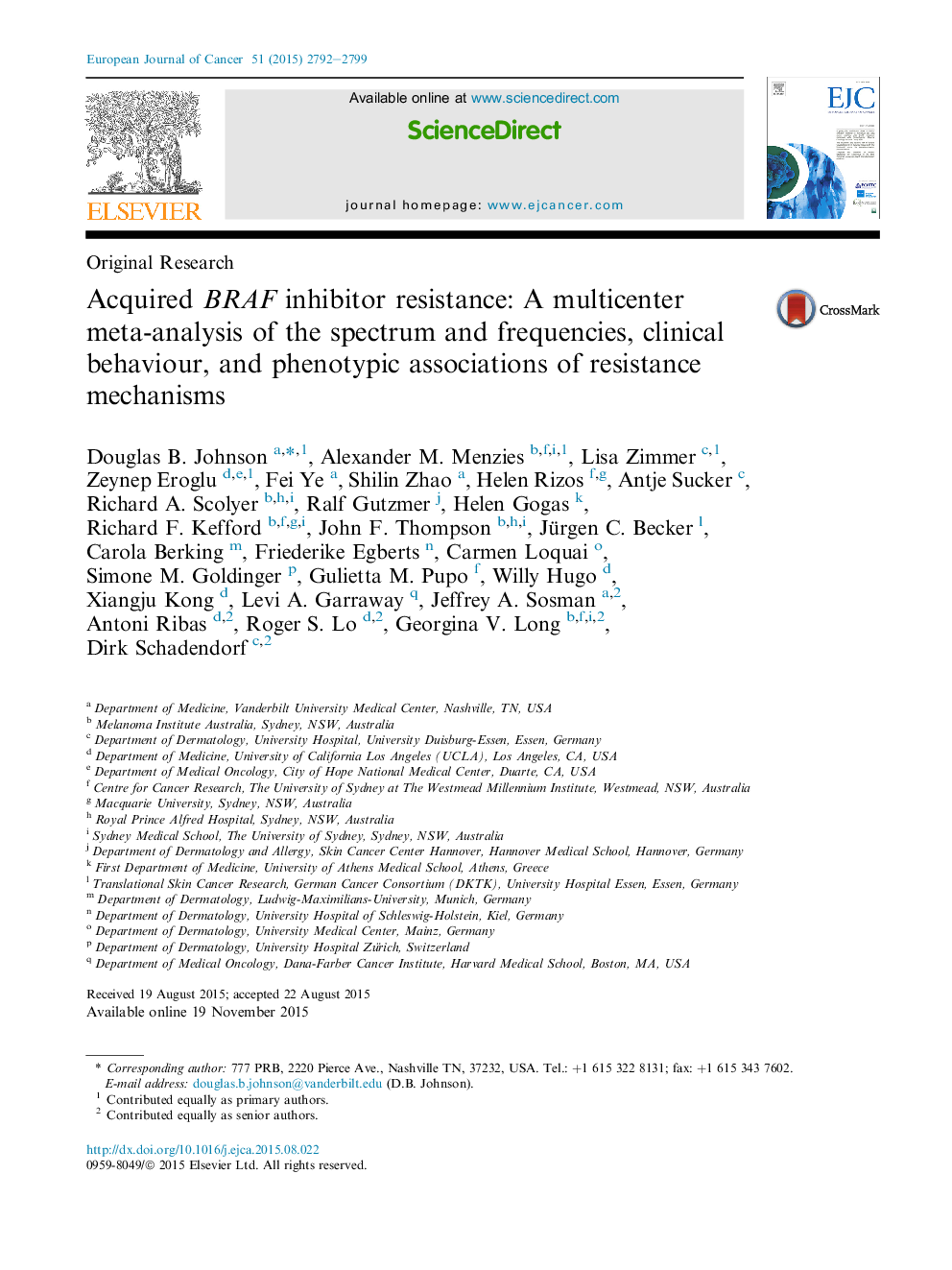| کد مقاله | کد نشریه | سال انتشار | مقاله انگلیسی | نسخه تمام متن |
|---|---|---|---|---|
| 2121562 | 1547089 | 2015 | 8 صفحه PDF | دانلود رایگان |

• We examined clinical implications of BRAF inhibitor-resistance mechanisms in 100 patients.
• Mitogen-activated protein kinase pathway mechanisms predominated and overlapped.
• Acquired NRAS mutations were associated with vemurafenib use and brain metastases.
• MEK1/2 mutations correlated with hepatic disease progression.
• Post-progression outcomes were similar across resistance mechanisms.
BackgroundAcquired resistance to BRAF inhibitors (BRAFi) is a near-universal phenomenon caused by numerous genetic and non-genetic alterations. In this study, we evaluated the spectrum, onset, pattern of progression, and subsequent clinical outcomes associated with specific mechanisms of resistance.MethodsWe compiled clinical and genetic data from 100 patients with 132 tissue samples obtained at progression on BRAFi therapy from 3 large, previously published studies of BRAFi resistance. These samples were subjected to whole-exome sequencing and/or polymerase chain reaction-based genetic testing.ResultsAmong 132 samples, putative resistance mechanisms were identified in 58%, including NRAS or KRAS mutations (20%), BRAF splice variants (16%), BRAFV600E/K amplifications (13%), MEK1/2 mutations (7%), and non-mitogen-activated protein kinase pathway alterations (11%). Marked heterogeneity was observed within tumors and patients; 18 of 19 patients (95%) with more than one progression biopsy had distinct/unknown drivers of resistance between samples. NRAS mutations were associated with vemurafenib use (p = 0.045) and intracranial metastases (p = 0.036), and MEK1/2 mutations correlated with hepatic progression (p = 0.011). Progression-free survival and overall survival were similar across resistance mechanisms. The median survival after disease progression was 6.9 months, and responses to subsequent BRAF and MEK inhibition were uncommon (2 of 15; 13%). Post-progression outcomes did not correlate with specific acquired BRAFi-resistance mechanisms.ConclusionsThis is the first study to systematically characterise the clinical implications of particular acquired BRAFi-resistance mechanisms in patients with BRAF-mutant melanoma largest study to compile the landscape of resistance. Despite marked heterogeneity of resistance mechanisms within patients, NRAS mutations correlated with vemurafenib use and intracranial disease involvement.
Journal: European Journal of Cancer - Volume 51, Issue 18, December 2015, Pages 2792–2799